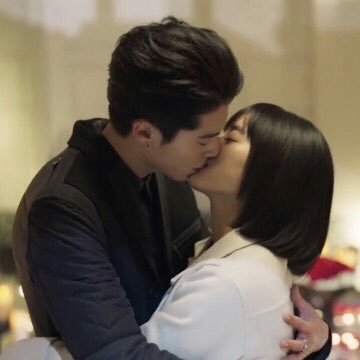Introduction

“Boys Over Flowers” and the Chinese version of “Meteor Garden” offer rich, distinct takes on the classic Japanese manga “Hana Yori Dango.” Both adaptations delve into themes of love, social class, and personal growth, but each presents its romantic elements in uniquely appealing ways. The Korean version, “Boys Over Flowers,” is known for its dramatic flair, while the Chinese “Meteor Garden” is cherished for its abundance of sweet and tender moments.
Outside in the cold, Shan Cai’s shoes are torn near the thumb. Noticing this, Dao Ming Si remarks, “How clumsy you are, I have to take care of you for a lifetime.” He then takes her to buy new shoes. Seeing her struggle, he kneels down and offers her a piggyback ride, creating a heartfelt moment. The gesture is tender and symbolic, suggesting he wants to walk every step of their journey together.
Overview of “Boys Over Flowers” & “Meteor Garden” (Chinese Version)
Plot Summary:
Centering on Geum Jan-Di, a girl from a humble background thrust into the elite environment of Shinhwa High School, this drama explores her turbulent interactions with the F4, especially the group’s leader, Gu Jun-Pyo.
Key Characters:
- Gu Jun-Pyo: Lee Min-Ho
- Geum Jan-Di: Ku Hye-Sun
- Yoon Ji-Hoo: Kim Hyun-Joong
- So Yi-Jung: Kim Bum
- Song Woo-Bin: Kim Joon
Introduction to “Meteor Garden” (Chinese Version)
New Elements in Plot: “Meteor Garden” features Shan Cai, who confronts the affluence and influence of the F4 at Ming De University, with a focus on her relationship with the mercurial Dao Ming Si.
Key Characters:
- Dao Ming Si: Dylan Wang
- Shan Cai: Shen Yue
- Hua Ze Lei: Darren Chen
- Xi Men: Caesar Wu
- Mei Zuo: Connor Leong
Character Comparison and Romantic Scene Highlights

While both dramas share character archetypes, they differ in how these characters’ relationships develop and are portrayed.
Confrontation Scenes:
- Boys Over Flowers: One iconic scene is when Jan-Di first stands up to Jun-Pyo’s bullying. It’s a defiant splash of yogurt on his face, marking the beginning of their tumultuous relationship. This scene sets a tone of resilience and defiance.
- Meteor Garden (Chinese Version): Conversely, Shan Cai’s defiance against Dao Ming Si is portrayed with a slap—a direct challenge to his ego. This scene, while also establishing Shan Cai’s bravery, injects a more direct romantic tension as Dao Ming Si begins to reconsider his feelings and actions sooner than Jun-Pyo.
Iconic Romantic Scenes:
- Boys Over Flowers:
- The ‘back-hug’ scene where Jan-Di comforts a distressed Jun-Pyo after a challenging confrontation with his mother captures a pivotal moment of vulnerability and closeness between them.
- Another touching moment is the beach scene, where Jun-Pyo expresses his feelings for Jan-Di under the stars, an emotional confession that deepens their bond.
- Meteor Garden (Chinese Version):
- One particularly sweet scene occurs when Dao Ming Si sets up a candlelit area to express his feelings to Shan Cai, showcasing his softer, more romantic side.
- Another memorable moment is when Shan Cai falls ill and Dao Ming Si meticulously takes care of her, displaying his affection and concern through gentle, caring actions that endear him to viewers.
Appreciating Differences
“Meteor Garden” (Chinese Version) arguably offers a richer array of such intimate moments more frequently throughout the series, contrasting with the more sporadic but impactful romantic gestures seen in “Boys Over Flowers.” This abundance of tender scenes in “Meteor Garden” helps establish a faster emotional connection between the characters and the audience, enhancing the overall romantic feel of the series.

Conclusion
“Boys Over Flowers” and “Meteor Garden” (Chinese Version) each capture the essence of youthful romance against a backdrop of social pressures and personal challenges. While “Boys Over Flowers” excels with its intense emotional peaks and dramatic romantic gestures, “Meteor Garden” charms with a steady flow of sweet, heartfelt interactions that paint a picture of everyday affection and care. These differences make each series uniquely engaging, offering fans of the genre two distinctive flavors of romance to savor. Whether one prefers the slow burn of dramatic tension or the warmth of constant affection, both series provide ample romance and drama to delight their audiences.

